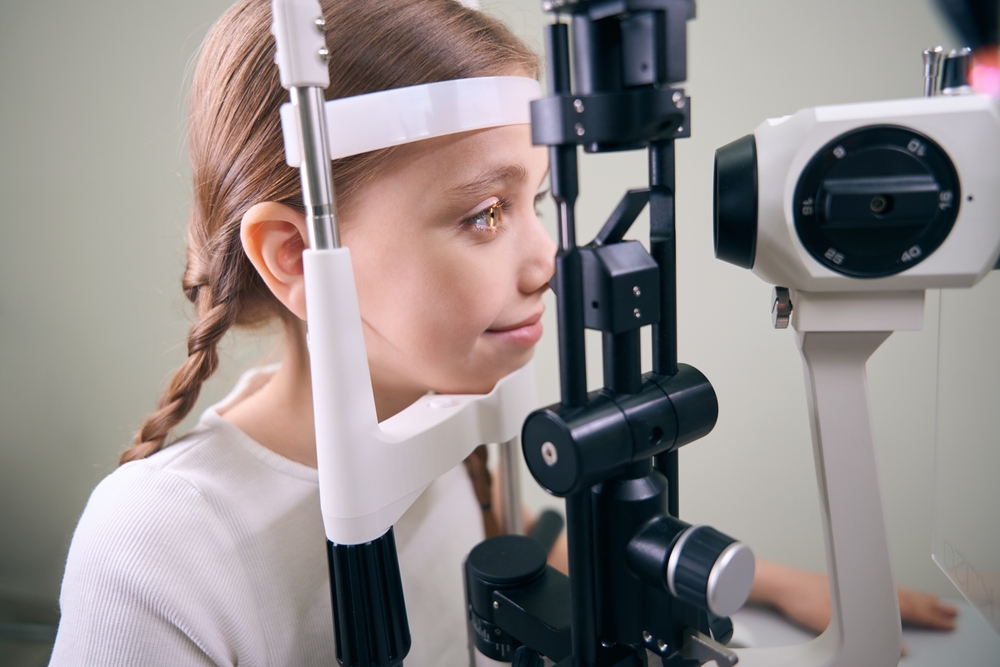
As a parent, you want the best for your child's overall well-being, and that includes their eye health. Children's vision is a crucial aspect of their development, affecting their learning, social interactions, and overall quality of life. Unfortunately, many parents overlook the importance of regular eye exams, leading to undetected vision problems that can have long-lasting consequences.
Common Eye Conditions that Can Affect Children
Children can experience a range of common eye conditions that, if left untreated, can affect their vision and overall development. These conditions include myopia (nearsightedness), which causes difficulty seeing distant objects; hyperopia (farsightedness), which can make it challenging to focus on nearby objects; and astigmatism, where the eye's curvature leads to blurred vision.
Amblyopia, also known as "lazy eye," occurs when one eye is weaker than the other, and strabismus, or "crossed eyes," involves misalignment of the eyes. Early detection and treatment of these conditions are crucial to ensure that children can achieve their full visual potential and succeed in school and daily activities.
The Impact of Vision Problems on Learning and Development
Vision plays a crucial role in a child's educational and social development. When vision problems go undetected, they can lead to a range of challenges, including:
Academic Performance: Undiagnosed vision issues can make it difficult for children to read, write, and focus in the classroom, leading to poor academic performance.
Behavioral and Emotional Challenges: Vision problems can cause headaches, eye strain, and frustration, which can contribute to behavioral issues and negatively impact a child's emotional well-being.
Social Interactions: Children with vision problems may struggle with hand-eye coordination, making it difficult to participate in sports and other physical activities, which can affect their social interactions and confidence.
Long-Term Consequences: Untreated vision problems in childhood can lead to permanent vision loss or other long-term issues if not addressed early on.
Why Regular Pediatric Eye Exams are Crucial
Regular pediatric eye exams are essential for the early detection and treatment of vision problems in children. Eye exams can identify vision issues before they become more severe, allowing for timely intervention and treatment. They can track the development of a child's vision, ensuring that any changes or problems are addressed promptly. Catching vision problems early can prevent them from worsening and potentially causing long-term damage to a child's vision and development. With proper vision, children can thrive in their academic and social pursuits, leading to better overall development and well-being.
Signs that Your Child May Need an Eye Exam
While regular eye exams are recommended for all children, there are certain signs that may indicate your child needs an eye exam sooner rather than later. These include:
Frequent eye rubbing or blinking
Complaints of headaches or eye strain
Difficulty reading or focusing on tasks
Tilting the head or covering one eye
Avoiding activities that require close-up vision
Sitting too close to the television or electronic devices
Frequent loss of place when reading
Delayed motor skill development
If you notice any of these signs in your child, it's important to schedule an eye exam with an optometrist as soon as possible.
Prioritizing Children's Eye Health for a Brighter Future
Your child's vision is a crucial aspect of their overall health and development. By prioritizing regular pediatric eye exams and addressing any vision problems early on, you can help ensure your child has the best possible chance of success in their academic, social, and personal pursuits.
To schedule your child's next eye exam, contact Bright Eyes Vision. We are dedicated to providing comprehensive, personalized care to ensure your child's visual development remains on track. Visit our office in Plymouth, Indiana, or call (574) 936-2272 to book an appointment today.









